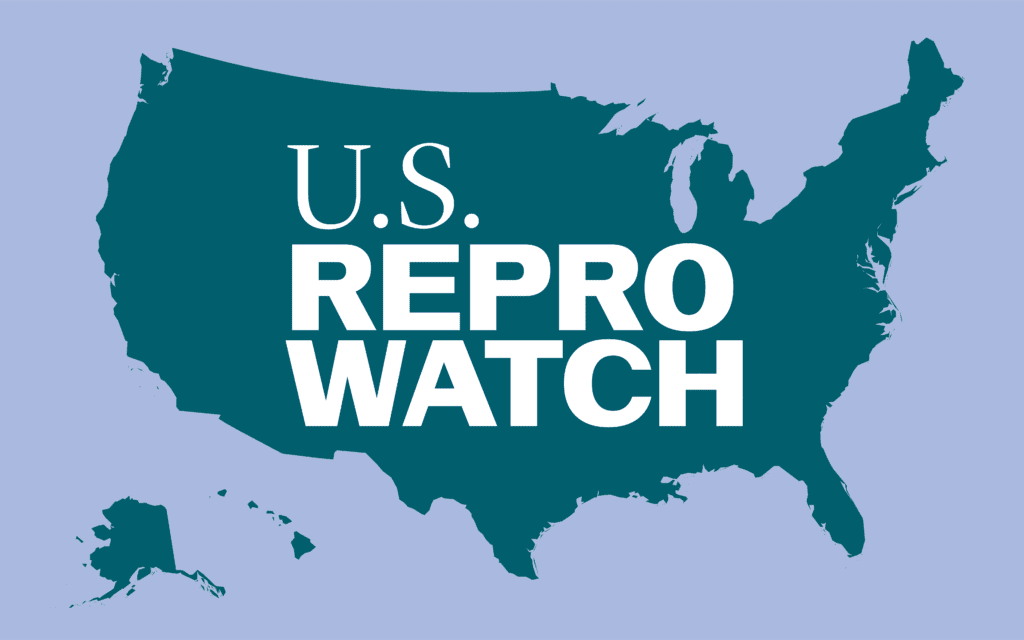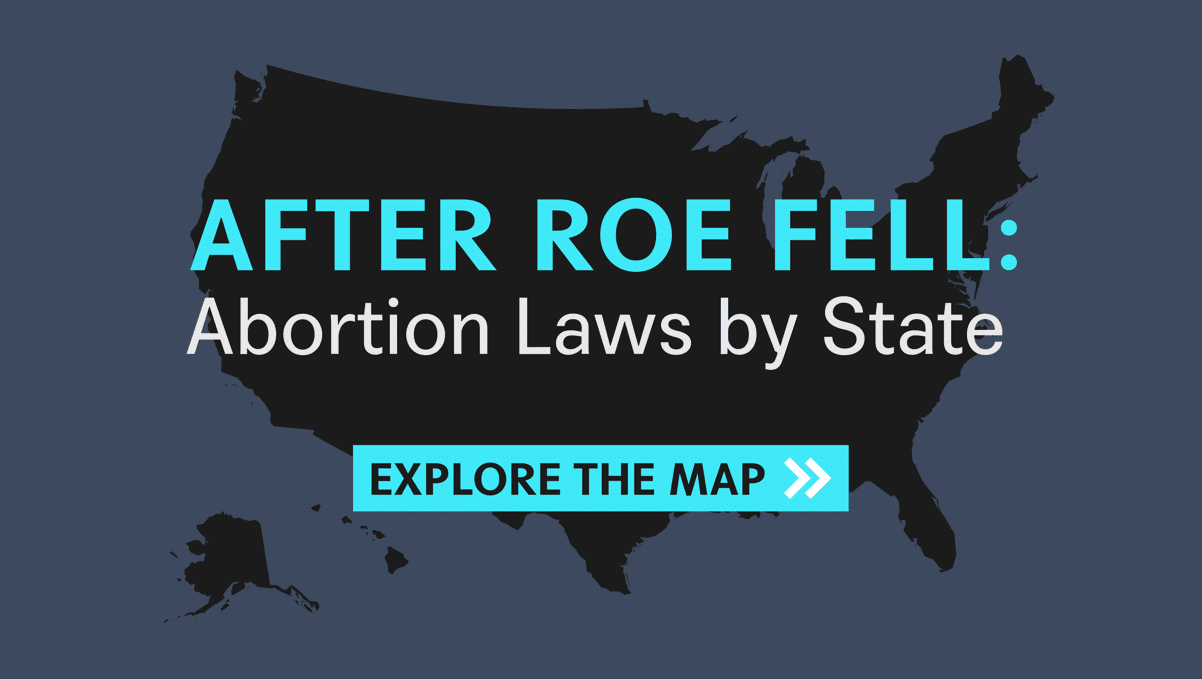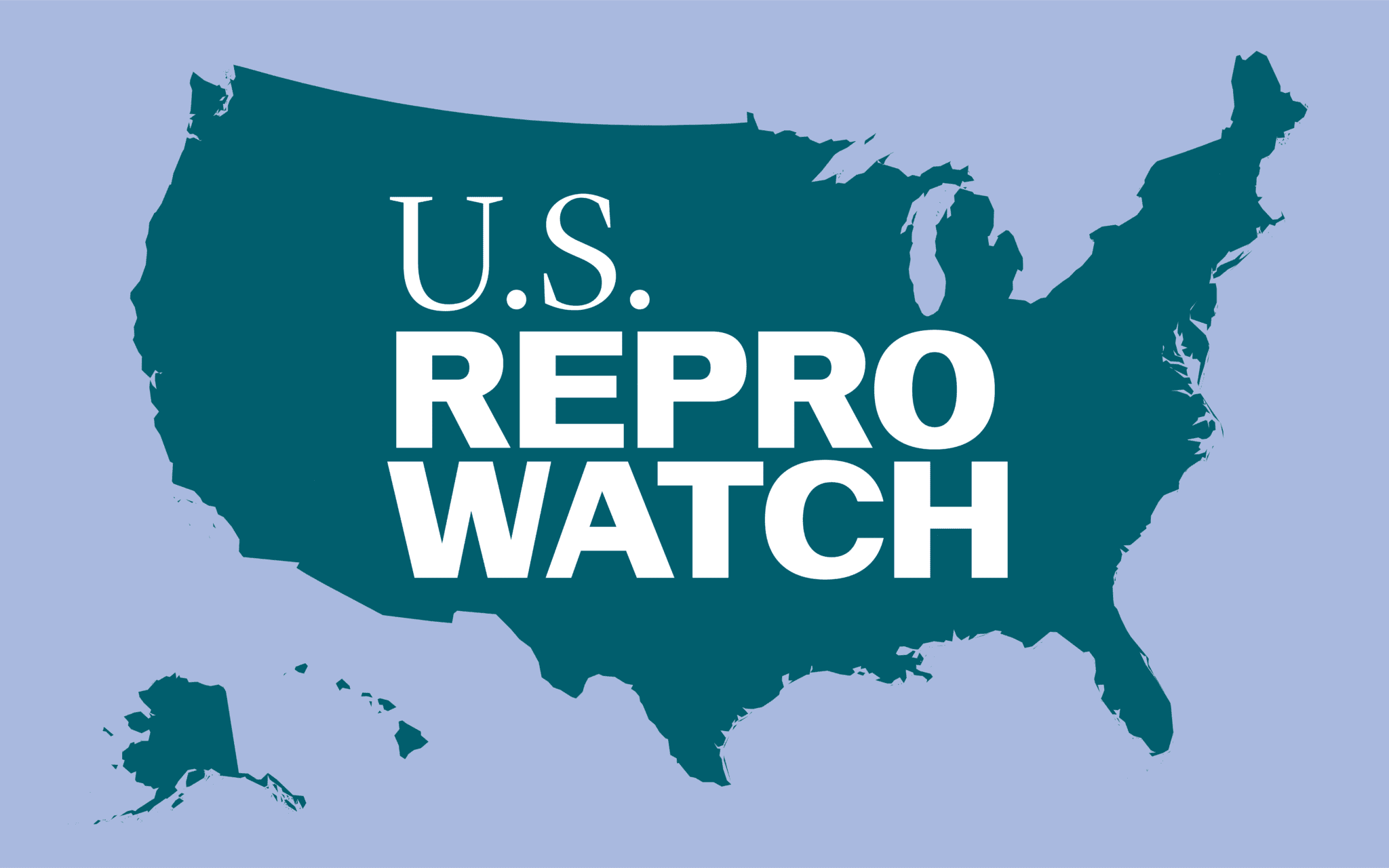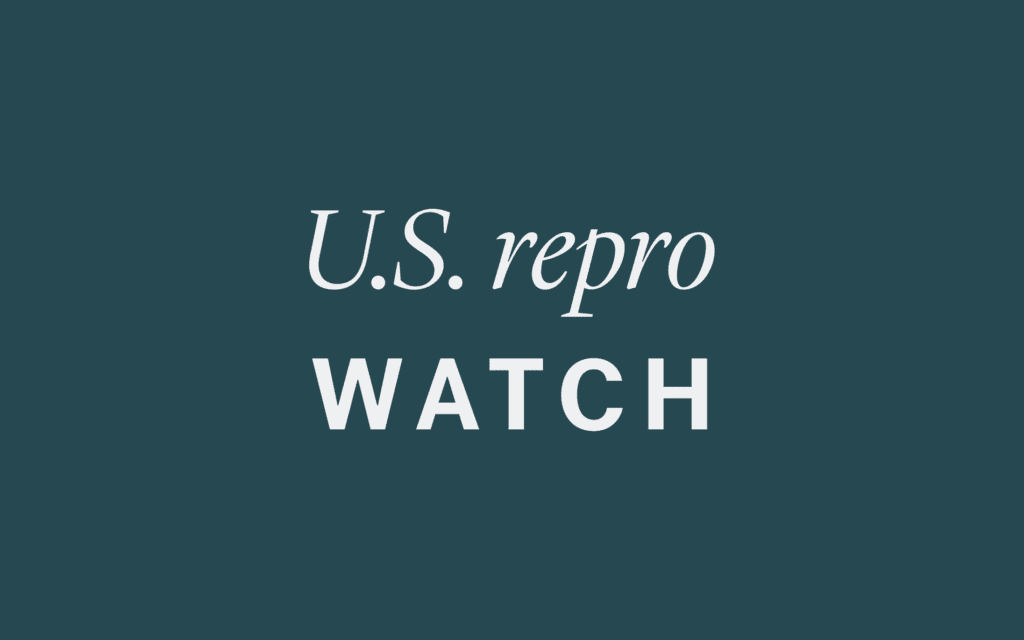U.S. Repro Watch, June 29
A year without Roe and another report on the devastating impacts of abortion bans, plus more top news on U.S. reproductive rights.

U.S. Repro Watch provides periodic updates on news of interest on U.S. reproductive rights. Here are four recent items you won’t want to miss:
1. June 24 marked one year without Roe v. Wade.
- More than a dozen U.S. states have banned abortion, leaving millions without access to essential, time-sensitive health care—even when facing severe pregnancy complications and risks to their health and lives. (See “Did you know?” below about the latest report on the devastating impacts of the Supreme Court’s ruling.)
- To mark the date, First Lady Jill Biden invited four women who were denied abortions in emergency situations to the White House for a roundtable discussion. Vice President Harris gave a speech in Charlotte, NC, calling on Congress to codify abortion rights into federal law, and President Biden signed an executive order expanding access to contraception.
- On June 22, the Center for Reproductive Rights held a virtual town hall titled “The Forward Fight: Abortion Rights in the U.S. One Year Post-Roe.” Use passcode ?^sd#U2+ to view the video replay here.
- The Center also issued a new legal analysis, Dobbs’s Destructive Originalism: Using “History and Tradition” to Undermine Liberty.
Read more.
The Center’s Fight Forward for U.S. Abortion Rights and Access
Find out how you can help #TheForwardFight today.
2. Litigation against state abortion bans continued. . .
– North Dakota health care providers filed a lawsuit on June 12 seeking to strike down the state’s recently enacted total abortion ban.
- Plaintiffs, represented by the Center, argue that the total ban has vague and confusing language, which has left providers uncertain over when they can provide abortion care without risk of punishment. Those who violate the law could face up to five years in prison with a felony conviction and/or a fine of $10,000. The lawsuit also argues that the ban “flagrantly violates” a recent North Dakota Supreme Court ruling recognizing the right to abortion in life and health-threatening situations.
– The Iowa Supreme Court kept a six-week abortion ban blocked.
- Although Iowa Gov. Kim Reynolds had asked the court to reinstate a six-week ban that had been struck down four years ago, the state’s high court left the ban blocked in a split 3-3 decision.
– North Carolina judge denies request to temporarily block 12-week abortion ban.
- Abortion providers had filed a federal lawsuit against the ban on June 16, arguing that several provisions were unconstitutional and vague and asking the judge to block most of the law before it takes effect July 1. The federal court heard arguments over the ban June 28.
– South Carolina’s Supreme Court heard arguments over the state’s new six-week abortion ban.
- The ban was temporarily blocked in response to a lawsuit by the Center and its partners. The Court already struck down another six-week ban earlier this year.
- The lawsuit challenging the ban argues that it is unconstitutional since it violates the South Carolina constitution’s guarantees to privacy, equal protection, and due process.
Where do U.S. state abortion laws stand now?
Find out with this interactive map, updated in real time.
3. More abortion-related updates in the states:
- New York Gov. Kathy Hochul signed a bill on June 23 that would legally protect doctors who prescribe and send abortion pills to patients living in other states where the procedure is outlawed. The legislation could help expand medication abortion access nationwide, allowing more patients to end pregnancies without having to travel to states where the practice is legal.
- New York also received federal approval to extend its postpartum Medicaid coverage to a year after childbirth, and a federal appellate court upheld a New York county law protecting abortion clinics from protestors.
- Oregon lawmakers passed a bill intended to protect abortion access, but only after adding stricter requirements for young people seeking abortions without parental consent.
- Kansas state officials have agreed not to enforce a so-called medication abortion “reversal” law until a court weighs in on whether to block the requirement. The law, originally set to take effect July 1, was one of several challenged by the Center earlier this month.
- A Wyoming judge temporarily blocked the state’s recently enacted ban on abortion pills a week before it was scheduled to take effect.
4. In international news, health authorities in Poland found a woman’s rights were violated after she was denied an abortion and died.
- Dorota Lalik was around five months pregnant when her water broke. She died in a hospital three days later from sepsis after being denied timely abortion care, prompting nationwide protests. She was the seventh woman known to have died in Polish hospitals since the country’s abortion ban took effect in 2021.
- After the June 12 ruling, the Polish health minister announced they will develop hospital guidelines on abortion care.
U.S. Repro Watch
Read previous U.S. Repro Watch posts.
Did you know?
A new survey from KFF, “A National Survey of OBGYNs’ Experiences After Dobbs,” shows the devastating impacts of Dobbs on OBGYNs and their ability to care for their patients across the country.
- Close to 70% of the OBGYNs surveyed say the Supreme Court’s ruling to overturn Roe has gravely impacted their ability to manage pregnancy related emergencies.
- More than six in 10 doctors in restrictive states expressed concern about their legal risk when making decisions about patient care.
- Most OBGYNs also believe that Dobbs has worsened pregnancy related mortality and racial and ethnic inequities in maternal health.




